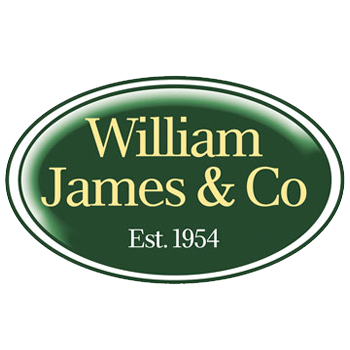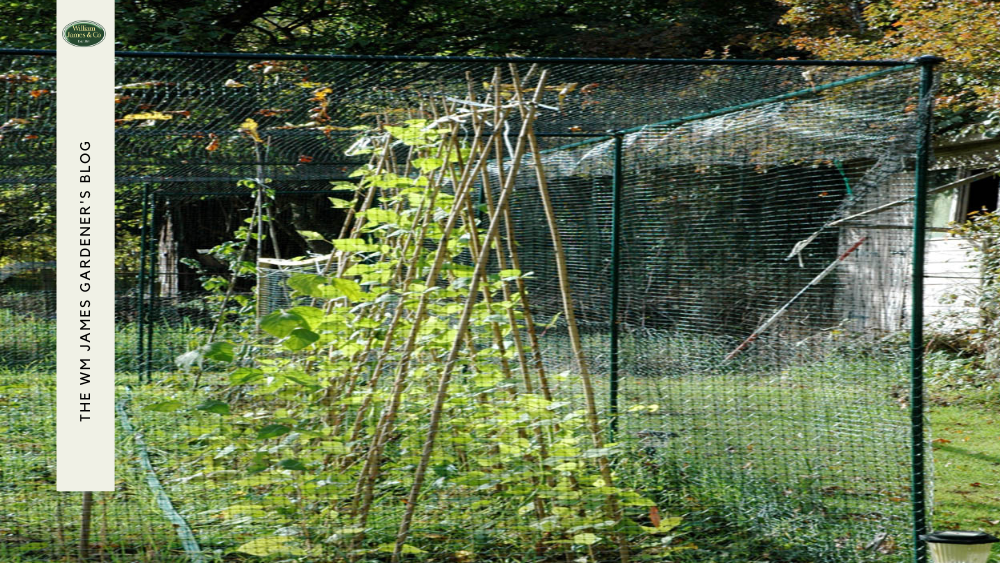We use cookies to make your experience better. To comply with the new e-Privacy directive, we need to ask for your consent to set the cookies. Learn more.
Our Guide to Choosing the Best Garden Netting Mesh for Your Project
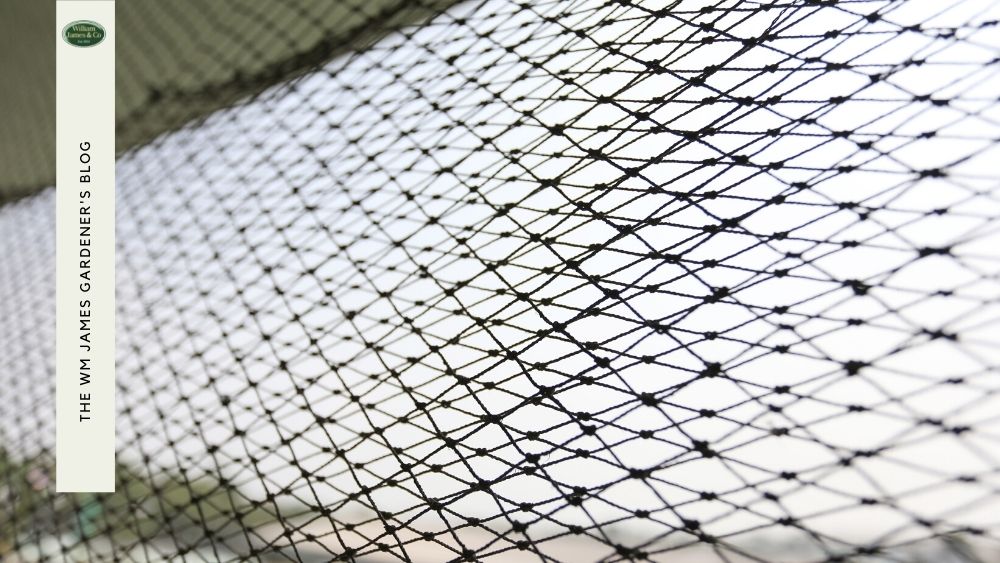
Take a look at our guide to choosing the best garden netting & most suitable mesh size. Whether it's plant protection or garden security, WM James has you covered. Find out more.
Whether you’re carrying out a complete garden overhaul or just adding new features, it’s likely that at some point, you will need to purchase garden netting. Choosing the best garden netting depends entirely on your project, and there are many types to choose from.
For over 60 years, WM James has been manufacturing and supplying top-quality garden netting to a wide range of gardeners, both commercially and domestically.
Our netting is known for its reliability when it comes to protecting your plants and garden, as well as supporting the growth of healthy, bountiful crops.
We’re here to help advise you on the most suitable netting to use based on the project you are carrying out.
Let's get started!
Fruit Cage and Bird Netting for Gardens
Bird and fruit cage netting is by far the most popular type of garden netting that we sell. This netting is popular because it’s very versatile and can be used for a range of different applications.
Of course, fruit cage netting is primarily used to cover fruit cage frames; however, there are still several types to choose from.
Types of Fruit Cage Netting
The most common type of fruit cage netting that customers purchase is 20mm knotless fruit cage netting.
Fruit cage netting is best for preventing smaller birds from getting into your cage and eating your fruit crops. If you need to protect against rabbits and deer, then heavy-duty plastic netting would be a suitable solution.
We advise using smaller mesh netting on the side of the cage and larger mesh on the top (100mm). This stops birds from getting stuck in the cage and allows birds to fly out of the roof if they have managed to breach the side netting.
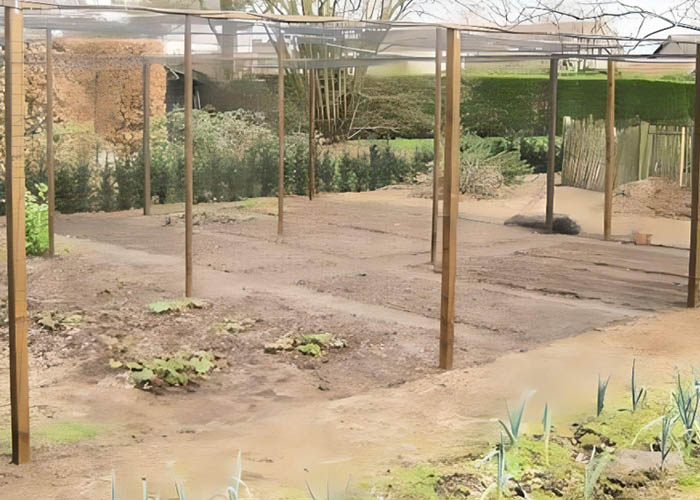
Other Anti-Bird Netting Solutions
If you require netting to protect other areas of your garden from birds, such as walls, roofs and concaves, then you should purchase knotless bird netting.
Again, this comes in different mesh sizes depending on the species you are protecting against.
Smaller 20mm mesh will prevent birds the size of a sparrow and upwards, 50mm mesh is suitable for pigeons, and 100mm mesh will protect against gulls.
Butterfly & Insect Netting for Gardens
For crops and plants that are growing on the garden floor, the best garden netting to use for crop protection is butterfly and insect netting.
This lightweight netting is designed to rest gently on the top of plants and vegetables so as not to cause damage. If required, you can secure it into the ground using pegs.
Butterfly Netting
Butterfly netting has a larger mesh size than insect netting, usually around 7mm. Because of this, it is not suitable for use as general insect protection netting but is small enough to prevent cabbage white butterflies from gaining access to your plants and crops.
The main reason that gardeners use butterfly netting is to protect vegetables from future caterpillar damage.

Ultra Fine & Fine Insect Netting
Insect netting has a much finer mesh, and we sell it in two different sizes, which are fine mesh and ultra-fine mesh.
The best netting for the job depends on the type of pest you are protecting against. Fine mesh insect netting will protect against species like carrot flies, whereas ultra-fine insect nets prevent damage from carrot flies, root flies, onion flies and flea beetles.
Despite insect-proof mesh having a much finer and closer mesh design, it still allows plenty of air and light through and is lightweight enough to be laid over crops and plants.
Rabbit & Deer Netting for Gardens, Allotments & Open Spaces
Gardeners living in rural locations often have different pests and species to contend with when it comes to protecting their patches.
Gardens that back onto fields and open spaces often attract attention from deer, rabbits, moles, rats and mice.
Deer Netting
Deer netting is typically used around the perimeter of gardens to prevent deer from entering. It’s important to check that the netting you are buying is tall enough to stop deers from jumping over the netting once installed, around 2m high is usually enough.
If you are happy for deer to enter your garden, then you may choose to cordon off certain areas of your garden around your favourite plants and trees.
Deer netting can also be a useful solution if you have dogs and want to prevent them from entering certain areas of your garden, borders or vegetable patches.
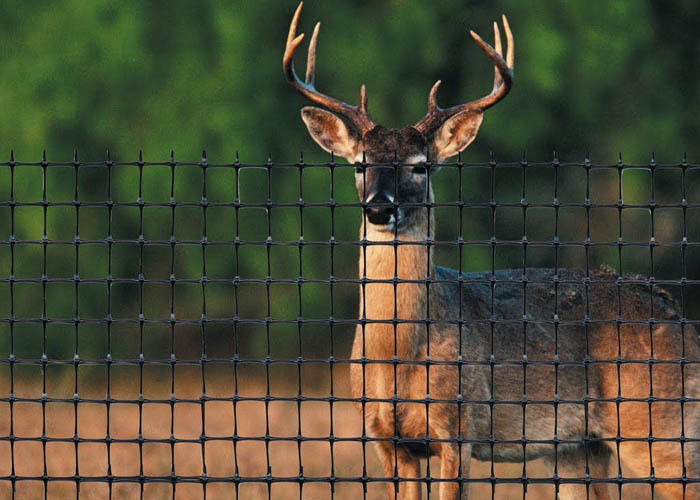
Rabbit Netting
Rabbit netting has a smaller mesh than deer netting and usually needs to be dug into the ground to stop rabbits from burrowing underneath. This can also be used to protect your garden against moles.
Rodent Netting
Rat and mice netting will need a very small mesh made from reinforced plastic or metal.
If you have existing netting, you can attach rat and mice netting to the bottom of your existing netting to create a double barrier.
Plant Support Netting
Climbing plants and vegetables often require additional support when they are in the main phase of their growth. If you plan to grow plants on walls, sticks or features such as arbours and arches, then it’s always a good idea to install plant support netting first.
It can be difficult to do this afterwards, and you risk causing damage to plants.
Jute Netting for Plant Growth
Jute netting is probably the most popular and best garden netting for this type of project. It’s lightweight, cheap and straightforward to install.
Another great feature of jute netting is that it’s biodegradable and better for the environment than plastic netting.
Green Plastic Netting for Plants
If you require more robust garden netting that needs to be in place for many years, then Climbanet is the best option.
This heavy-duty garden netting is made from green plastic and is strong enough to be attached to fence posts and used as fencing netting too.
It’s excellent for use with more substantial plants that require additional support, and the green colour blends in nicely once the plant has grown enough to cover the mesh.
Pond Netting Solutions
Gardeners with water features, like ponds, should always consider installing pond netting both for safety and practical reasons.
The best garden netting for this purpose will depend on whether you are protecting against adults, children or pets falling in, birds or debris contaminating your pond.
Pond Safety Netting
Pond safety netting is a heavy-weight solution that’s made using commercial-grade safety netting, the same netting that is used on construction sites.
It has a small 45mm mesh and a 3.2kn burst strength per mesh which can easily support the weight of an average adult. The netting alone will not provide adequate protection, as the installation is just as important.

Bird & Debris Pond Nets
To stop birds from entering your pond to eat fish and other pond life, a lightweight 20mm bird mesh is a top solution. It will prevent birds from being able to enter the pond, and it will deter larger birds from landing on the netting to gain access.
This type of netting can also be used to prevent debris, such as sticks and leaves, from contaminating your pond.
Rounding Up Our Best Garden Netting
There are many different types of netting that you can use for your garden project. Hopefully, this short guide has given you some tips for choosing the best garden netting based on your needs.
Don’t forget that we sell a full range of garden products, from fruit cages to tools to netting.
Plus, our bespoke netting for gardens is ideal if you're after something specific. Shop our selection today for the perfect garden netting solution!
FAQs
What is the Best Material for Garden Netting?
What is the Best Mesh to Protect Plants?
Our Fine and Ultra-Fine Insect Netting for the garden is a great choice for protecting plants. The tiny mesh size will stop all manner of garden pests and predators from getting at your plants. Plus, its very lightweight, so it won't weigh down on your produce.
Can Slugs Get Through Netting?
If you're using a larger mesh, like bird netting, then slugs will likely get through. You should use a fine insect or butterfly mesh if you're trying to keep slugs off your plants. The mesh size of insect netting is much smaller, so it won't let the slugs through. For maximum slug protection, we recommend using copper slug tape or a slug mat.
What is an Alternative to Plastic Bird Netting?
Jute netting can make a good alternative for plastic bird mesh. It's important that you still use the correct mesh size to ensure the pest protection you need. You can even use jute twine to create your own netting if you enjoy garden DIY.
